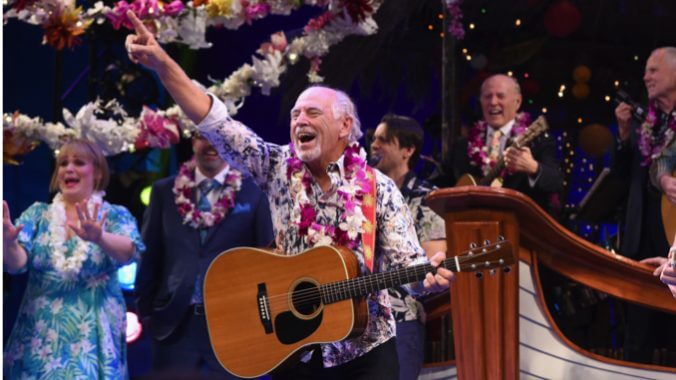Jimmy Buffett Docks the Boat One Last Time
Photo by Noam Galai/Getty
Jimmy Buffett, the musician who built an empire out of the beach-bum lifestyle, died in hospice Friday at age 76 after a long battle with skin cancer. In many ways, his career paralleled that of the Grateful Dead. Each act personified a different brand of American hedonism: the Dead’s trucking and tripping in Northern California and Buffett’s sailing and drinking on the Gulf Coast.
“The culture along the Gulf Coast travels east-west,” Buffett told me in 1986. “You go 10 miles north and you’re in a different region. People who grow up along the coast like to eat, listen to music and have a good time. Most people live in a more complicated world, but when you get in a less complicated place, you find there’s only two things you really need: a good song and a good meal.”
Each act’s utopian fantasy inspired a fervent baby-boomer following; one group called themselves the Parrotheads, the other the Deadheads. One group wore a uniform of sunglasses and Hawaiian shirts, the other a uniform of ponytails and tie-dye shirts. Neither act had much luck on top-40 radio; they each had just one top-10 single: Buffett’s #8 “Margaritaville” in 1977 and the Dead’s #9 “Touch of Grey” in 1987. But both acts were powerhouses on the live-performance circuit, reliably selling out suburban sheds and basketball arenas.
Both acts were eventually scorned by later generations of hipsters and punks. Those critics identified some legitimate flaws, but they missed the undercurrent of tension in the best work of Buffett and the Dead. Beneath the visions of easygoing pleasure and transcendence was the worry that it was all precarious and could easily slip back into past problems or forward into future disappointments.
Even Buffett’s signature song “Margaritaville” reflected this dichotomy. The bouncy music and chuckling vocals celebrate the ability of that “frozen concoction” to cover up your problems, but those problems are all over the song: a bleeding foot from a pop top in the sand and romantic problems that are probably the singer’s fault.
This inner conflict is most obvious on “A Pirate Looks at Forty,” Buffett’s greatest song. Written for an older, marijuana-smuggling friend, the song has a wistful air, as if the young, seemingly carefree buccaneer inevitably becomes “an over-40 victim of fate … down to rock bottom again.”
Listen to an exclusive 1974 Jimmy Buffett performance at Record Plant:
Buffett was approaching 40 himself when I interviewed him in 1986. “I never thought I’d make it this far,” he said, laughing. “But I’ve done more in 39 years than most people do in their whole life, so I’m looking forward to the second half.”
The second half proved very lucrative indeed. Between 1994 and 2006, he racked up six top-10 pop albums, including three Platinum and four Gold Records. He became the sixth writer to top both the fiction and non-fiction best-seller lists for The New York Times. His Margaritaville nightclubs opened in nine locations from Key West to Jamaica to New Orleans. But his best songwriting was behind him.
The rowdy party guy and the melancholy writer wrestled within Buffett from his adolescence on. He grew up in Mobile Alabama, where he was a former altar boy. While a senior in a Catholic high school there, he made his first trip to New Orleans.
“If you grew up in the Deep South,” he told me in 1986, “and you wanted to get into trouble, you headed for New Orleans. It was Sin City, and I knew where I wanted to go. I landed a summer job with a band and was living all those trashy novels. I love the romanticism of the French Quarter; I still have an apartment down there where I go when I need some quiet time to get my creative juices flowing.”
-

-

-

-

-

-

-

-

-

-

-

-

-

-

-

-

-

-

-

-

-

-

-

-

-

-

-

-

-

-

-

-

-

-

-

-

-

-

-

-








































